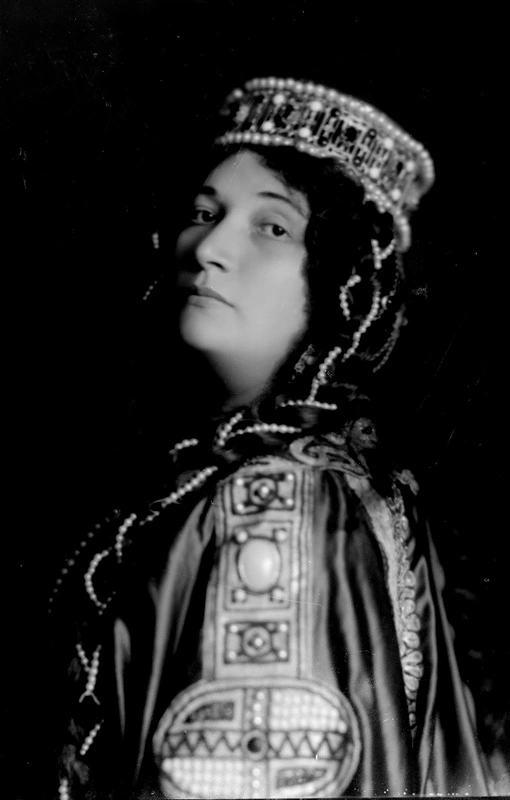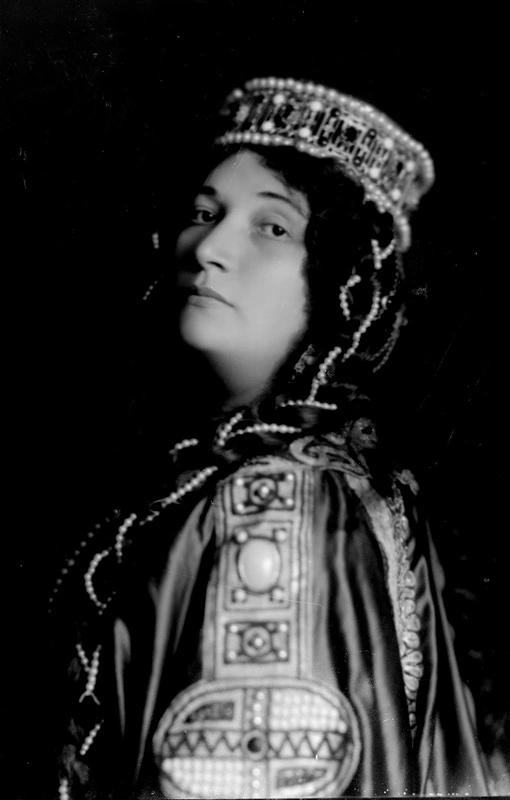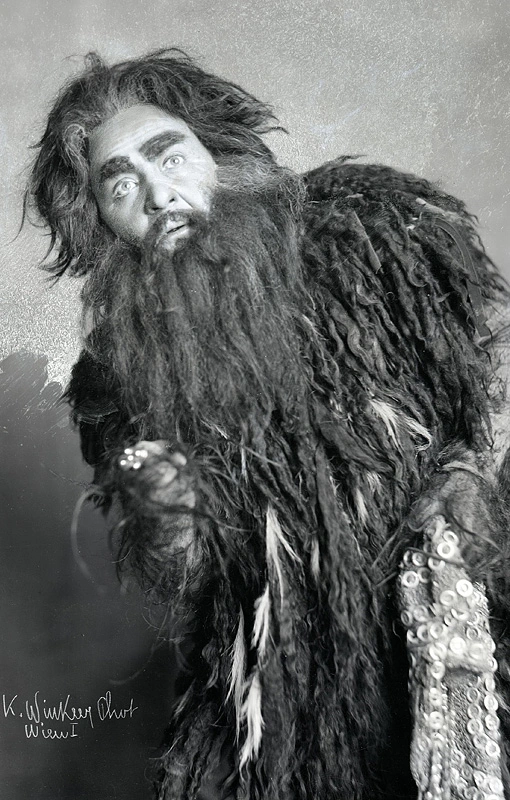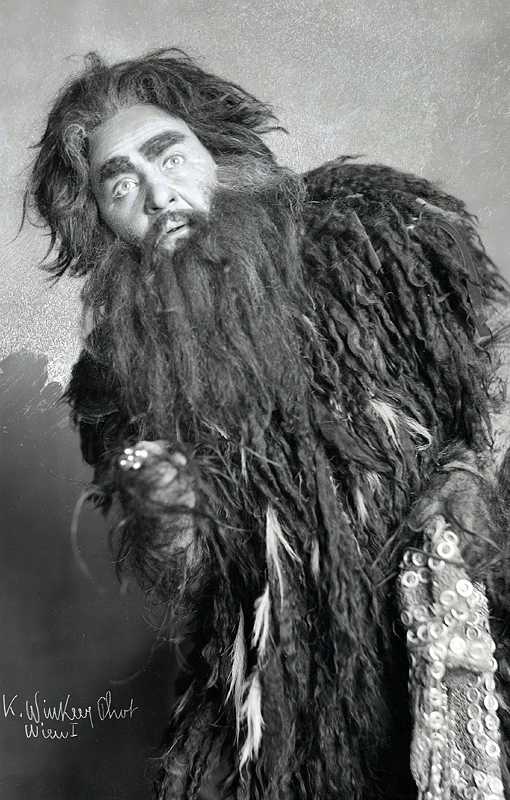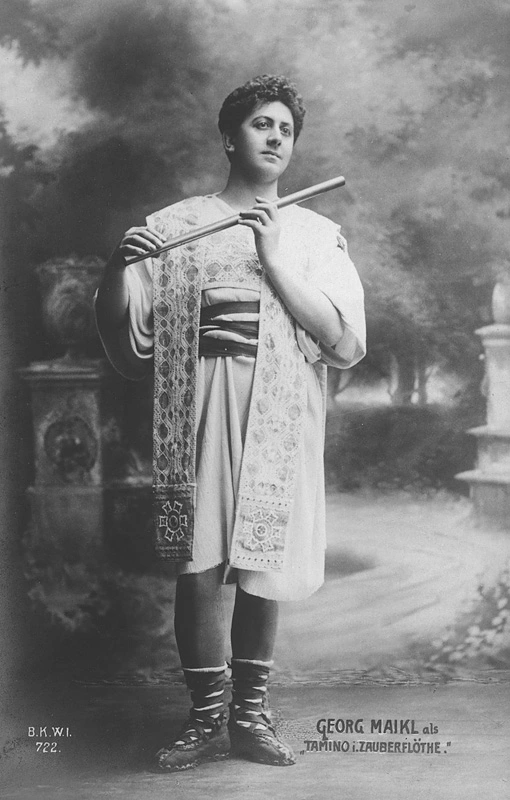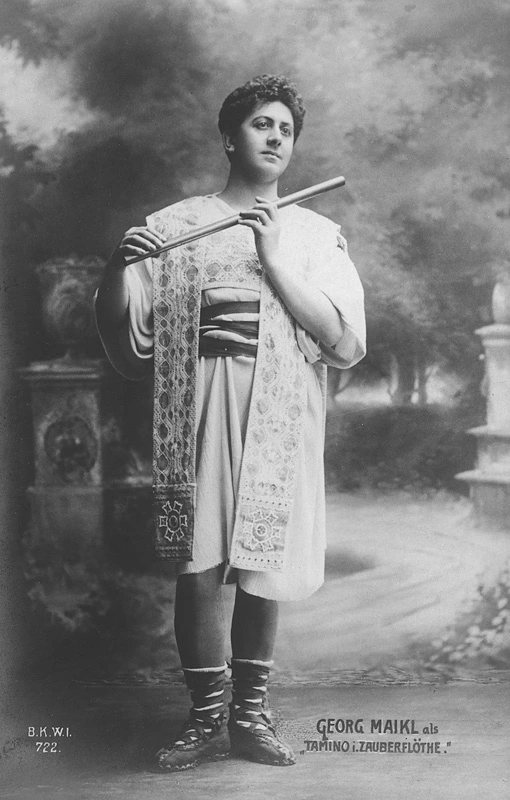The final chord
Mahler's final years as director were marked by some exemplary performances, ably assisted by Alfred Roller's costumes and set designs. However, conflicts also became more frequent during this period, along with personal attacks against him. Although Mahler conducted around 150 performances in his last four seasons at the Court Opera, he devoted an increasing proportion of his time to performances of his own works.
Criticism of the director's absence and disputes with singers or the General Directorate's bureaucracy were lapped up by a press that displayed distinct traces of anti-Semitism. This criticism, combined with Mahler's at times uncompromising approach, undermined his position at the Court Opera. These difficulties were compounded by several severe blows Mahler suffered in his private life, including the death of his daughter Maria in 1907. Mahler was diagnosed with a heart complaint that same year. All of these factors contributed to Mahler's eventual resignation.
On 15 October 1907, he conducted his last performance at the Vienna Court Opera: Beethoven's Fidelio, with Anna von Mildenburg as Leonore and Georg Maikl as Florestan. Mahler himself commented on his departure as follows: “First of all, it is absolutely not true that I was toppled by any ‘affairs’ of any kind. I was never toppled at all. I am leaving of my own accord because I want to be as independent as I can be, and because, above all, I have come to realise that the opera stage is an institution in itself, and one that no-one can hope to manage in the long run. It is impossible to maintain any theatre in the world at such level that all its performances are the same. That is the thing that puts me off theatre, because, of course, I want to have performances that are all of uniformly high quality, which is to say that I want to achieve an ideal that simply cannot be achieved. No-one ever managed it before me, and no-one who comes after me will manage it either.” (1907)
In December 1907, Mahler wrote an open letter of farewell to members of the Court Opera: “Time has set a limit to our work together. I am leaving a workplace I have come to love, and am writing to bid you farewell. Instead of the complete, self-contained whole I had dreamed of creating, I leave fragments and unfinished work. This is the destiny of all human beings. It is not for me to pass judgement on what my work has come to mean to the people to whom it was dedicated. However, at such a moment as this, I will permit myself to say the following: I was sincere. I aimed high. My efforts were not always rewarded with success. No-one is ever so at the mercy of the ‘resistance of matter’, the ‘trickery of the object’ as is a performing artist. But I have always given all I had, subordinating my individuality to the cause, and my inclinations to my duty. I did not spare myself, which meant I was entitled to demand every exertion from all those around me. In the melee of battle and the heat of the moment, neither you, nor I were spared from injuries or trials. But whenever a work proved successful, whenever the task at hand was completed, we forgot all our hardships and struggles and felt we had been richly rewarded - even if there were no external signs of our success. We have all made progress, as has the institution in whose name we made our efforts. I now thank from the bottom of my heart all those among you who assisted and fought alongside me in my difficult and often thankless task. Please accept my sincerest best wishes for your futures and for the continued prosperity of the Court Opera Theatre, whose fortunes I will continue to observe with the keenest of interest."
Die Hugenotten
Mahler's departure from the Court Opera marked a watershed in Vienna’s music life. When, on 9 December 1907, he departed Vienna on his way to take up his post at the Metropolitan Opera in New York, his supporters gathered at Vienna's Westbahnhof to bid farewell to one of the most influential figures ever to grace Vienna’s music scene. As Paul Grünfeldt wrote: “Nothing artificial interfered. There was only the compelling desire everyone felt to see the man to whom they owed so much for one last time… The train pulled away, and Gustav Klimt expressed aloud the anxious feeling everyone had already been sensing for a long time: ‘It's over!’” (Paul Grünfeldt, 1913).
Don Giovanni
Don Giovanni
Lohengrin
Tannhäuser

